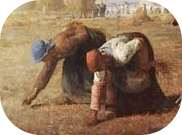
Title: “A Psalm of David, when Doeg the Edomite came and told Saul, and said unto him, David is come to the house of Ahimelech.” The incident referred to is found in the twenty-second chapter of the first book of Samuel where Doeg slew the eighty-five priests of the city of Nob. What follows is an account of the consequences of his blood-thirsty crime; although apparently unscathed and prosperous for a time the Lord would yet “root him out of the land of the living.”
Verse 1. “Why boastest thou thyself in mischief, O Mighty Man?” Doeg had small matter for boasting in having procured the slaughter of a band of defenceless priests. A “mighty man” indeed to kill men who never touched a sword! He ought to have been ashamed of his cowardice. He had no room for exaltation! Honourable titles are but irony where the wearer is mean and cruel. But, “The goodness of God endureth continually,” If priests be slain, their Master lives. If Doeg for a while triumphs, the Lord will outlive him, and right the wrongs which he has done.
C. H. Spurgeon
Verse 1. “Why boastest thou thyself in mischief …” By “mischief” is to be understood, not simply what evil he had done, but the prosperity which he now enjoyed, obtained through the mischief. He had been the chief of Saul's shepherds (1st Samuel 21 verse 8) but by that wicked destruction of the priests of God he had obtained the chief place next to the King.
Hermann Venema
Verse 2. “Thy tongue deviseth mischiefs; like a sharp razor, working deceitfully.” The smooth, adroit manner of executing a wicked device neither hides or lessens its wickedness. Murder with “a sharp razor” is as wicked as murder with a meat-axe or a bludgeon. A lie very ingeniously framed and rehearsed in an oily manner, is as great a sin – and in the end will be seen to be as great a folly – as the most bungling attempt at deception.
William Plumer
Verse 3. “Selah.” Let us “pause” and look at the proud blustering liar. Doeg is gone, but other dogs bark at the Lord's people. Saul's cattle-master is buried, but the devil still has his drovers, who fain would hurry the saints like sheep to the slaughter.
Charles Hadden Spurgeon
Verse 5. “God shall likewise destroy thee for ever, he shall take thee away, and pluck thee out of thy dwelling place, and root thee out of the land of the living. Selah.” There are four words the psalmist makes use of to denote the utter vengeance that awaited this deceitful and bloody wretch, all of them having a very strong meaning. “Destroy” signifies to pull down and break utterly in pieces, as when an alter is demolished. “Take thee away” signifies utterly to sweep away anything like dust or chaff; not just “sweep thee away from thy tent,” but to sweep thee away that thou may no longer be a tent – thyself, thy family, thy fortune shall be wholly and entirely swept away and dissipated for ever. “Pluck thee out,” signifies to twist anything, or pluck it up by twisting it round and round, as trees are sometimes twisted up. “Root thee out of the land of the living.” Answers to the former. So, it is impossible that words could express a more entire and absolute destruction.
S. Chandler
Verse 7. “Lo, this is the man that made not God his strength; but trusted in the abundance of his riches …” Oh! 'Tis hard to abound in riches and not to trust in them.
William Gurnall
Verses 8 and 9. “But I am like a green olive tree in the house of God: I trust in the mercy of God for ever and ever,” etc. Let us now observe what David says of himself. “But I am like a green olive tree” etc. But is not this egotism, boasting? By no means. When the Pharisee in the temple said, “Lord, I thank Thee that I am not as other men are,” this arose from the spirit of self-applause, and self-satisfaction; but a good man knows that “by the grace of God” he is what he is, and has what he has. … An olive tree is an “evergreen”; and the graces of God's Spirit are never-dying graces. The work that God has commenced shall endure for ever. While “the outward man perisheth, the inward man is renewed day by day.” … The apostle speaks of the “fatness” of the olive tree in his epistle to the Romans (and) there must be fruit where there is divine grace. “Herein is my Father glorified,” said our Saviour, “that ye bear much fruit.” And when David says, “I am like a green olive tree in the house of my God,” he plainly intimates that he was what he was by being where he was … and that his produce arises from his position. There he was nurtured – there he was brought up – there he was trained – there he was defended.
William Jay
| This Page Title – Gleanings in the Psalms – Psalm 52 The Wicket Gate Magazine "A Continuing Witness". Internet Edition number 94 – placed on line January 2012 Magazine web address – www.wicketgate.co.uk |